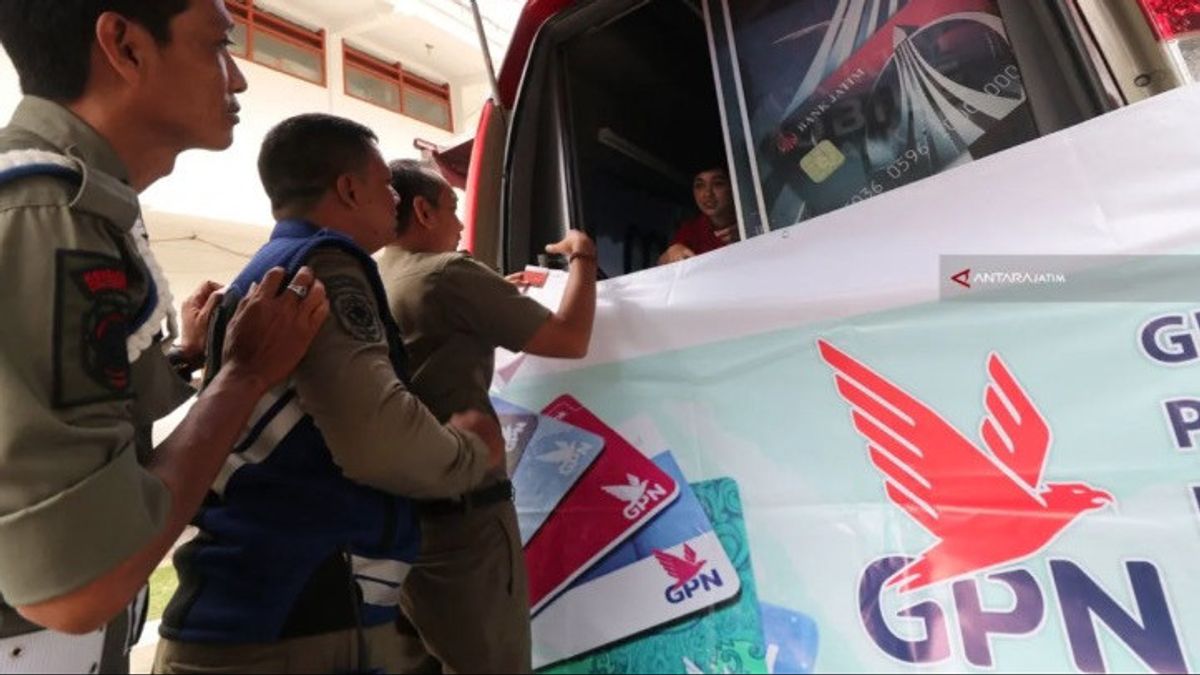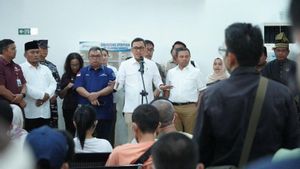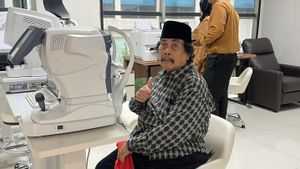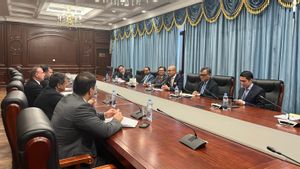JAKARTA The United States (US) complaint against the Quick Response Code Indonesian Standard (QRIS) is said to have no solid basis. QRIS and the National Payment Gate (GPN), which were also criticized by the US, are a form of national economic sovereignty so that Indonesia does not need to close its mouth with Uncle Sam's verbal.
The relationship between Indonesia and the United States is entering new tensions. The national payment system, QRIS, has been criticized by Washington. The US government, through the United States Trade Representative (USTR), accused Indonesia of limiting access to foreign companies in the digital financial ecosystem, including GPN services.
The criticism is contained in the 2025 annual report entitled National Trade Estate Report on Foreign Trade Barriers, USTR claims the existence of QRIS as an obstacle that hinders the entry of US payment companies such as Visa and Martercard.
"International stakeholders are not given the opportunity to express their views in the process of drafting policies for the QR BI system," USTR wrote.
Not only QRIS, but the US also has a problem with limiting foreign ownership by 20 percent in thewitchingGPN service, as stated in Bank Indonesia Regulation Number 19/10/PADG/2017. The regulation requires foreign companies to establish local partnerships and transfer technology, as a condition for participating in domestic payment systems.
BI Senior Deputy Governor Destry Damayanti answered the USTR report, emphasizing that Indonesia has never closed itself to international cooperation, including with the US.
"If America is ready, we (Indonesia) are ready, why not (for cooperation)?" he said.
He emphasized that digital payment systems such as QRIS and Fast payment are built on the principles of inclusiveness and efficiency, but still pay attention to the readiness of the national infrastructure and ecosystem. Cross-border cooperation, said Destry, is very possible if the regulations and readiness of the two parties are in line.
However, amid US criticism of QRIS and GPN, netizens hope the government does not soften against the country.
"QRIS and GPN must be unfair. Domestic transactions should not need to involve paymentasing. Transactions are in Indonesia, the accounts are Indonesia, the users are Indonesians, the money is rupiah, there is no need to pay the percent abroad," said one user X.
Through a short message to VOI, economist from the Center of Economic and Law Studies (Celios) Nailul Huda, US protests about QRIS because they did not get rice regarding the payment system made in countries that have their own payment systems, including Indonesia.
Mastercard and Visa, two US-made payment products, called Huda, do not match the wishes of the Indonesian market, which wants transactions easily and quickly as offered by QRIS.
International relations expert at Padjadjaran University, Teuku Rezasyah, encouraged the Indonesian government to be firm and consistent in national interests during the process of negotiating reciprocals with the US.
SEE ALSO:
"The attitude of the Republic of Indonesia should be open, firm, but also consistent with all the rules that apply at the national and international levels," Reza said, quoting Antara.
Indonesia's firmness is very important to maintain national economic sovereignty in the midst of global geopolitical dynamics. If Indonesia tends to soften against US pressure, according to Reza, it could be interpreted negatively by other countries, including China, as an attitude that could potentially harm their economic interests.
"Therefore, in dealing with the US which has the potential to disrupt Indonesia's national sovereignty, the Indonesian government should always have a dialogue based on valid data, and be connected to all national and international law rules," said Reza.
The same thing was expressed by a public policy observer from Trisakti University, Trubus Rahadiansyah. According to him, Indonesian authorities need to respond to US complaints wisely and calmly. Indonesia also does not need to obey everything that is complained of or asked by the US.
In this way, Indonesia can maintain economic sovereignty in the middle of the tariff negotiations process with Uncle Sam's country.
"The US complaints are offside, and seem to be interfering too much with Indonesia's economic policies," he said.
Karena itu terhadap persoalan seperti ini, dirinya menyarankan agar Indonesia harus mengambil kebijakan yang beradilan dalam artinya bahwa terkait contextis ini negosi tariff dengan AS harus lebih banyak prioritas untuk melindungi kepentingan industri dalam negeri.
"When it comes to the export market to the US, the state should look for a new export market so that it doesn't depend too much on the US. In addition, the US complaints are only temporary and very political because it is not certain that the next US President will want to continue the policies implemented by Donald Trump," Trubus concluded.
US concerns about QRIS are quite reasonable. The payment system through QRIS shows impressive performance since its launch in 2019. BI data shows QRIS transaction volume soaring 163.32 percent (year-on-year) in February 2025.
The rapid growth was driven by an increase in the number of users and merchants, who now reach small traders in stalls to big retailers in big cities.
BI noted, until early 2025, more than 43 million merchants had adopted QRIS. The government also continues to encourage economic digitization through the integration of QRIS with transportation services, MSMEs, to payment of regional taxes and levies.
The English, Chinese, Japanese, Arabic, and French versions are automatically generated by the AI. So there may still be inaccuracies in translating, please always see Indonesian as our main language. (system supported by DigitalSiber.id)

















